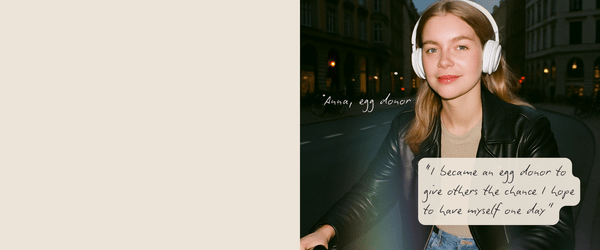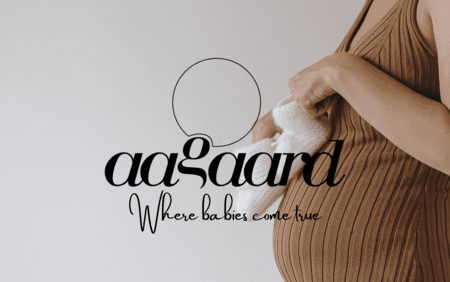Become an Egg Donor at Aagaard
Why become an egg donor?
Denmark is in need of egg donors, and many women and couples are hoping for help to fulfill their greatest wish - to have a child. As an egg donor, you can give them an invaluable gift: hope and the chance to create a family.
Who can become an egg donor?
If you are a woman between 18-35 years old (the process must be initiated before your 34th birthday), healthy both physically and mentally, without hereditary diseases, and with a BMI between 19 and 29, you can become an egg donor. You can also donate even if you use contraception like birth control pills, an IUD, or if you are sterilized.
As an egg donor, you can donate in several ways:
- No ID release*:
You and the recipient do not know each other and will not have your identities disclosed. - ID release*:
You and the recipient do not know each other. If the donation results in a child, the child can obtain your contact information via Aagaard when they turn 18 and contact you.
*A donor profile is created on you, which potential recipients receive prior to the donation. The donor profile includes information such as your height, weight, eye color, hair color, blood type, ethnicity, interests, personal characteristics, childhood memories, baby photos, and a small message to the recipient or recipient couple. Your donor profile allows the recipient or recipient couple to get an impression of you as a person. Often, reaching this stage in fertility treatment has been a long and challenging journey, and it is highly meaningful for the recipient or recipient couple to gain a sense of the person behind the donation so they can share this with a future child.
- Known Donor:
You donate to someone you know. Please note that as a donor, you must not be closely related to the man in the recipient couple. This means you cannot be his sister or cousin, nor can you be the daughter of his cousin.
How does it work?
As an egg donor, you will receive compassionate guidance and support throughout the entire process. You will undergo a gentle hormone treatment followed by a pain-managed egg retrieval. In recognition of your generosity, you will receive a taxable compensation of 7.200 DKK per donation. You can donate up to 6 times. If you donate to someone you know, we consider it a friendly gesture, and therefore, no financial compensation is provided by the clinic.
Find more information in the videos at the bottom of the page. Please note: Videos are in Danish.
Contact us - we are here for you
Are you considering becoming an egg donor, or do you have any questions? The egg donation team at Aagaard is ready to inform and guide you. Send an email to od@aagaardklinik.dk or call us at +45 86126121 for a no-obligation conversation.
We look forward to hearing from you!
Apply to become an egg donor at Aagaard
Instruction video for medication

